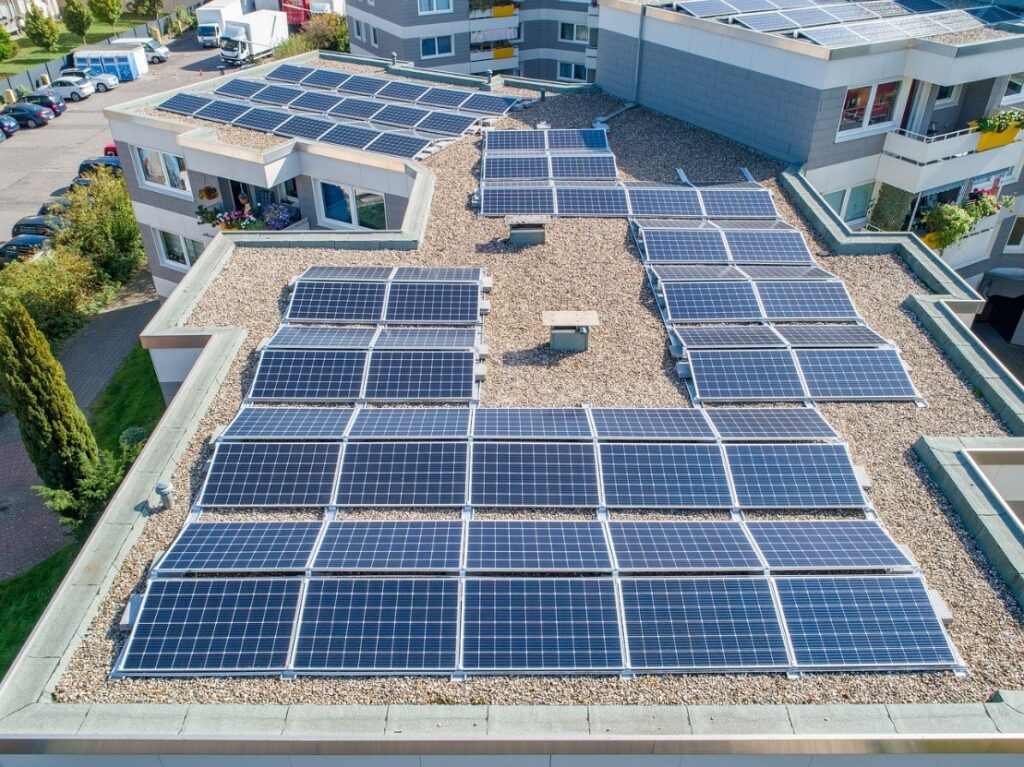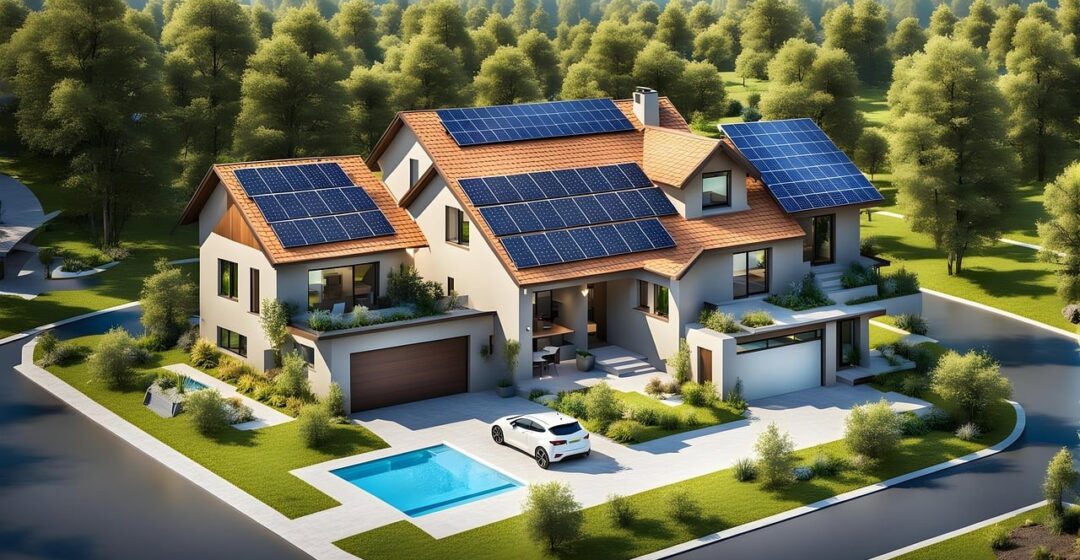Have you ever wondered if there’s a way to cut down your electricity bills while also contributing to a greener planet? Well, hold on to your light bulbs because peer-to-peer (P2P) energy trading is here to revolutionise the way we power our lives!
Think of P2P energy trading as the Airbnb of the energy world. It’s like skipping the middleman and buying your electricity directly from your neighbour who happens to have a solar panel on their roof. No more dealing with big energy companies or confusing tariffs – just a simple, direct exchange of energy.
Why Should You Care?
- Save Money: By buying energy from your neighbour, you can often get a better deal than what the energy giants offer. Say goodbye to those hefty bills!
- Support Clean Energy: When you buy from a fellow prosumer (someone who generates and consumes energy), you’re supporting renewable sources like solar and wind. It’s like high-fiving Mother Earth!
- Empower Communities: P2P trading strengthens local communities. Imagine a neighbourhood where everyone shares their excess energy – it’s like a mini power grid run by the people, for the people.

How Does It Work?
- Marketplaces: Picture an Uber-like app where you and your neighbour can place bids for energy. You choose who to buy from, and voilà – energy delivered!
- Local Microgrids: Some communities create their own mini power networks. It’s like having a neighbourhood energy potluck – everyone contributes and benefits.
Leading the Charge: P2P Energy Trading Startups.
- Schoonschip Amsterdam: This microgrid in the Netherlands allows neighbours to trade energy like Pokémon cards. It is efficient, eco-friendly, and neighbourly.
- Limejump: A UK-based platform that connects prosumers and consumers. It’s like Tinder for energy – swipe right for solar power!
What You Need to Get Started
- Hardware: Solar panels, wind turbines, or any other clean energy source.
- Software: An app or platform to connect with fellow prosumers.
- Legal Stuff: Make sure your local regulations allow P2P trading. No one wants a visit from the energy police!
So, next time you flip that light switch, remember – you have the power (literally) to shape a cleaner, fairer energy future. P2P energy trading isn’t just about kilowatts; it’s about community, savings, and a brighter planet. Let’s plug in and make a difference!
Seyedehsahar Seyedbarhagh
Doctoral student
School of Technology and Innovations
University of Vaasa





I want this now!
This seems exciting. I hope this kind of future becomes reality soon.
It is interesteing to see what kind of work colleagues are doing in our university.
This is an interesting development on a formerly centralized network becoming a-centralized. This will also change the political power dynamics in the markets by empowering communities over monopolies. This might be an interesting case to apply actor-network theory.
Very interesting and also crucial research topic! I hope to hear more about your research in the future.
Great!. This is really an interesting research topic because it will not only save money but also promotes more efficient use of energy by reducing transmission and distribution losses of energy. Another vital benefit is environmental; This system can significantly promote the use of electricity from renewable energy resources, which is a step towards reducing carbon emissions and environmental sustainability. I wish to hear more about your research in the future.
You raise issues that are important and topical to all of us well in your blog, i.e. the comparison network for reducing electricity bills and environmental friendliness (P2P) through energy trade. And this technology is available to us, great!
As you mention, this energy trade does not require the introduction of complex technology, only the use of solar panels, for example, is enough. Thus, one can avoid being a pawn in the profit-seeking of ruthlessly greedy listed electricity companies and directly source energy in an environmentally friendly and organic way. Best of all, we have access to clean energy and are able to support renewable energy sources.
In your writing, you also describe the operating principle of the actual marketplace, which thus dominates the buyer’s market. In which countries is this currently available in addition to the Netherlands and the UK you mentioned. Obviously, however, there are a lot of legal issues involved in the implementation of this trade that need to be clarified at the local level before the application is introduced.
Hopefully this will be possible soon in the future. Having the opportunity to buy electricity from your neighbour’s sustainable solar power system, it would really make a difference to environment and possibly on your wallet too! Great idea!